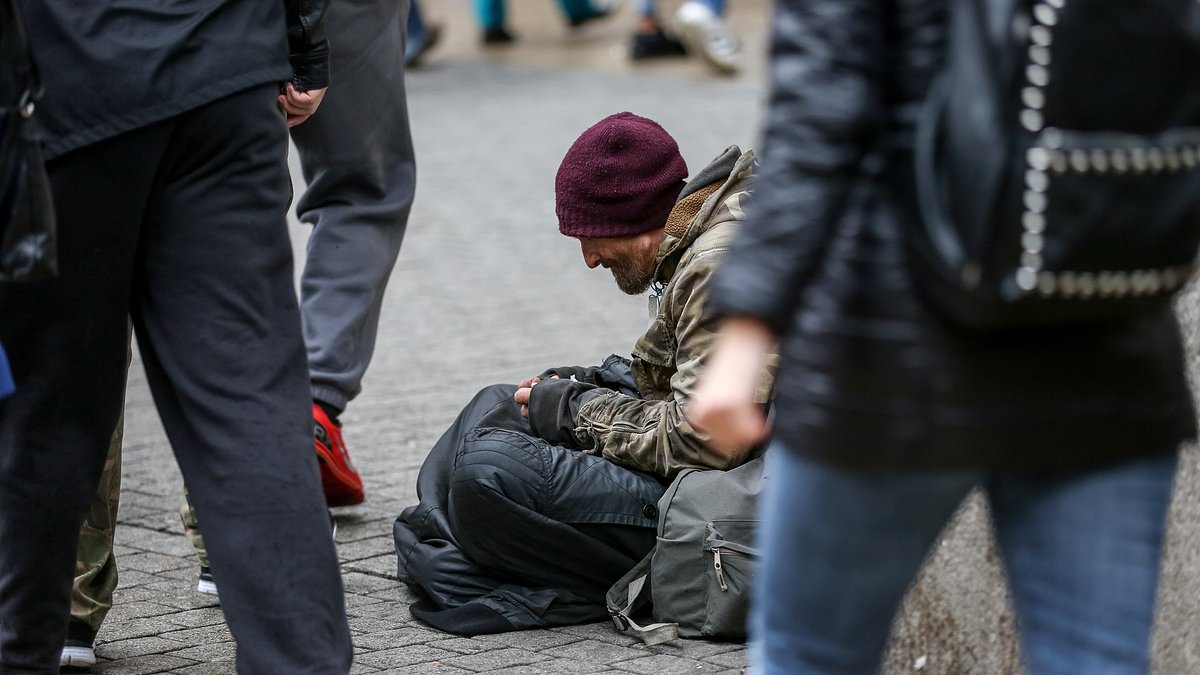Police to crack down on fake homeless beggars who have been working in shifts to fleece Christmas shoppers out of cash
A crackdown is planned on fake homeless aggressive beggars believed to be working a ‘shift system’ to harass female motorists and Christmas shoppers.
The scroungers reportedly pretend to be homeless individuals but have organised a rota to target victims stopped at traffic lights in Bradford, West Yorkshire.
Councillor David Green said: ‘One big ongoing issue is begging at traffic lights – it is becoming increasingly worrying.
‘It must be particularly scary for women drivers on their own when you have someone banging on your window.
‘There is not even the pretence that they will wash your window for money anymore, they just want money.
Councillor David Green (pictured) said: ‘One big ongoing issue is begging at traffic lights – it is becoming increasingly worrying’
The scroungers reportedly pretend to be homeless individuals but have organised a rota to target victims stopped at traffic lights in Bradford, West Yorkshire (file image of a homeless man in Leeds)
‘There does seem to be a feel that there is some sort of organisation behind it – even if it is just a shift system that they have organised among themselves.’
Insp Nick Haigh, of West Yorkshire Police, said a number of the city centre and traffic lights beggars had already been slapped with criminal behaviour orders.
The city’s new anti-social behaviour Tsar John Redding promised a purge on those involved with traffic light begging or street drinking if they do not accept offers of help.
He told a council meeting: ‘While we are a compassionate city, we can also look at being more assertive and use the powers we’ve got.’
Council bosses say the number of criminal behaviour orders issued in the city is actually going down.
But Councillor Brendan Stubbs feared this was because because people were now resigned to the fact they would have to live with such behaviour.
He said: ‘Some members of the public have given up expecting things to be resolved or tackled.’
Source: Read Full Article


